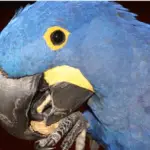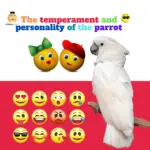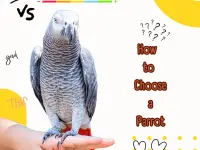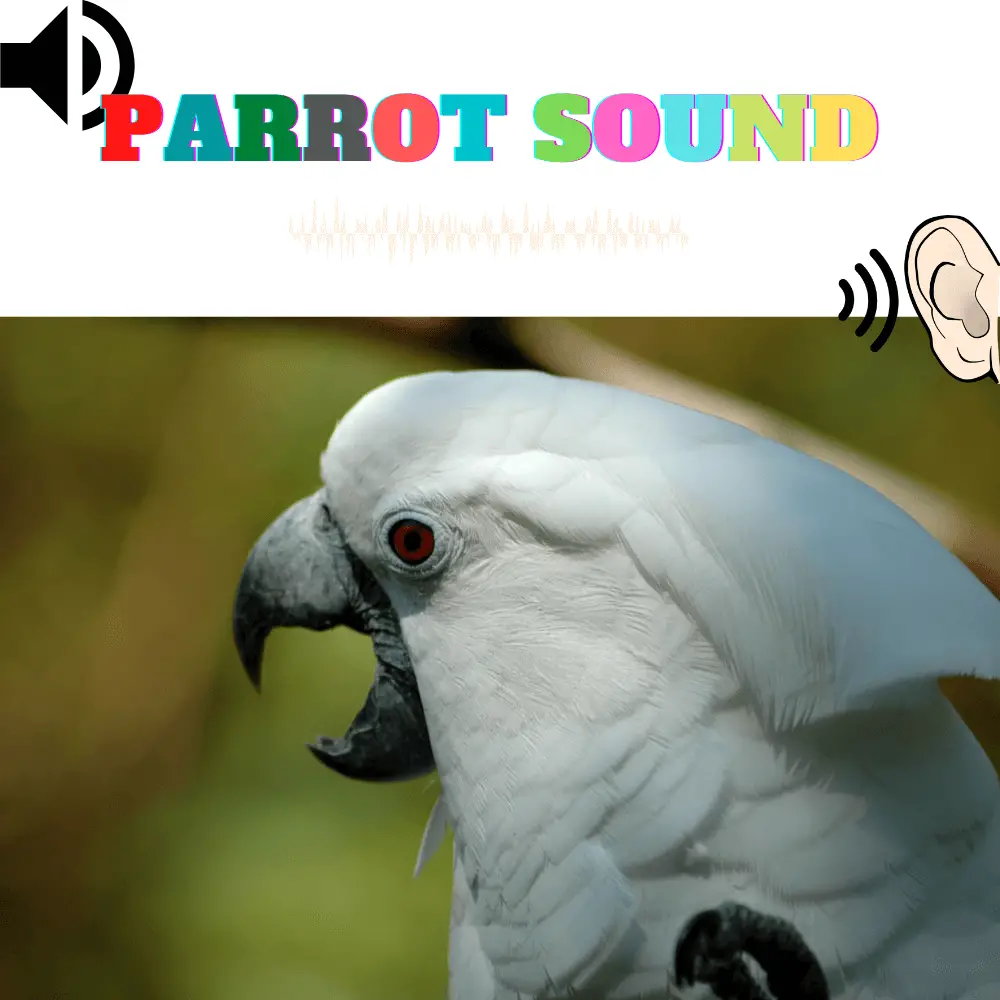
Parrot Sound: Accepting to live with one or more parrots also means accepting the level of cacophony that comes standard with these charming little birds.
It is one of the indissoluble clauses of the contract that you unwittingly signed with your bird at the time of adoption. I don’t want to disillusion you, but when we talk about a calm parrot, we are not talking about a voiceless parrot.
Let’s say rather that it is quoted in parallel with a parrot with the deafening voice because there is one thing that you absolutely must understand here… a silent parrot, that does not exist!
The parrot gives voice … it’s normal.
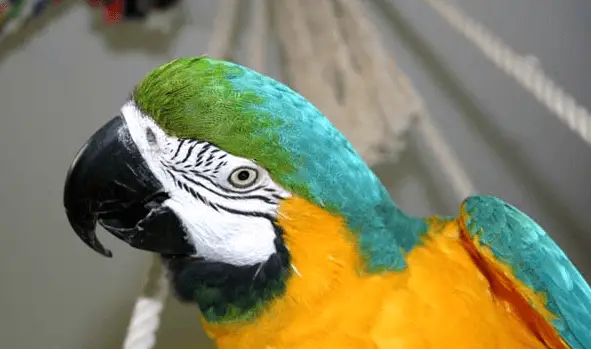
Parrot Sound
In their natural environment, parrots keep missing information all day long. They vocalize to locate themselves, to advise of what they are doing, where they are going, of a corner abundant in food, of a predator insight, of a young who has put his feet in the dishes, to find the group if you are lost, etc. It is security in numbers.
The same goes for companion parrots: shouting, very often, is used to represent the range that separates the bird from its human or social group, to know if the latter is at a reasonable distance and if they can hear Coco’s call.
This kind of vocalization is one of the most common and natural for the parrot. This is what is described under the term “contact call” and these calls are mainly used to maintain continuous and permanent contact with the companion or the social group. It is the bond that strengthens cohesion within the group.
As it is an innate trait of the character of parrots, it is therefore immutable, although, and I reassure you immediately, quite adaptable by well-conducted socialization.
The liaison call requires immediate attention in order to reassure the bird of your position on the territory ( the house ). When he calls you, the minimum is to answer him.
The importance of responding to this call prevents the bird from becoming anxious and resorting to incessant or very loud cries because it is panicking that it will not be answered – it has lost contact with you and it is worried.
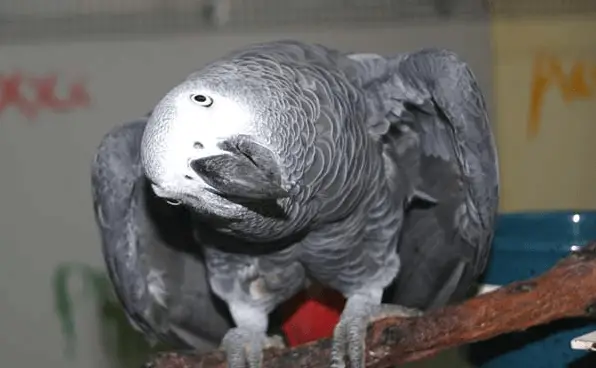
Parrot Sound
If you answer your birds’ bonding calls correctly, they’ll do the same with you. It is an innate behavior that should not be curbed. If you have a strong bond with your parrot, take note when you are not within sight of each other, if you call him by name, your bird will still make a sound at you. At this point, it simply answers your link call.
Link calls shouldn’t be those pushy screams that drive you crazy. A parrot who has benefited from careful socialization knows how to control your attention with pleasant and inviting sounds ( which you have transmitted to them ). Of course, everything here depends on what you have transmitted to him …
At home, parrots have learned to make liaison calls which I consider “civilized” and to my liking. They know they don’t have to resort to yelling to get the attention they want at a specific time. On the other hand, if you do not react to the subtlety of the first calls, no problem for Coco, this charming cherub has in reserve a battery of sounds of all the devils with which he can hold the attention of the deafest! AIE Aie Aie…!
I have friends who live with cats and an Amazon. The latter recently discovered a completely unusual liaison call to summon her beloved humans: it reproduces the horribly unpleasant sounds of the cat… who vomits…
Success is guaranteed at all times! And the best of the story is that the bird, very proud of its discovery, taunts all these beautiful people by laughing openly in front of the dazed look of the two mothers who nevertheless took a long time to understand the trick.
As the parrot is very observant, it will be able to use just as much the sounds emitted by the most usual objects of the house which hold your attention each time; for him, all this rustling makes for more than acceptable liaison calls.
The most obvious example is the ringing of the telephone: it is easy for the parrot to associate the ringing of the telephone with a link called, since each time the latter rings, you run up to it, answer it, and better yet… you talk to him!
So for the bird, it is a sound to be used to establish communication. This is, among other things, one of the reasons that practically all parrots know how to imitate the telephone: it rings, you run up, and… you answer it – not stupid!
So a ringing parrot commands a response. He’s calling you, he’s looking for your contact – it’s a liaison call. The same goes for all the annoying little sounds that the parrot likes to imitate and which have no other purpose than to attract your attention: video games, microwave, ringing off the dryer, etc. .; all the sounds or noises that, for sure, make you run towards them!
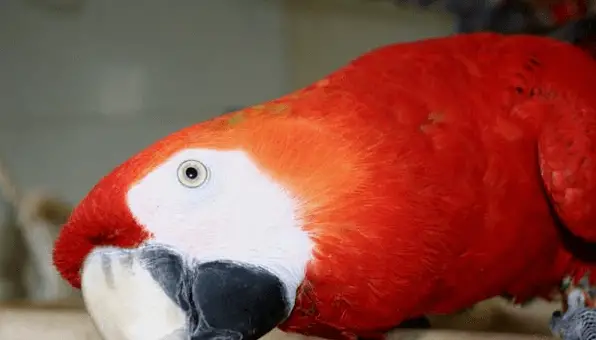
Parrot Sound
Why do parrots scream so loud?
Because it is a need that arises directly from the gregariousness of parrots. They are social animals that travel great distances in a day.
Nature has therefore endowed them with strong and powerful voices so that they can remain in permanent contact with their social group despite the distance that may separate them.
Their survival depends on constant communication with their group, and in all prey animals, survival is the primary concern. Since in the forest there is almost no visibility between the branches, a loud and powerful voice is the best way to stay in touch.
Predatory birds, such as hawks, owls, or hawks do not need such powerful voices, simply because they are mostly solitary animals which therefore do not have to communicate over long distances and prefer to keep a discreet profile until …
Nature has been able to give animals the attributes necessary for their survival.
What is your tolerance threshold?
The tolerable noise level is usually in the ear of the listener. I know a lot of people who live happily and in harmony with several large parrots or a squad of squawking and discordant conures, without being in any way bothered by a deafening decibel level and I have also met a lot of people who immediately lose patience. facing the ridiculous little whistles of their cockatiel.
Hence the importance of being well informed about the general characteristics of the species before adopting a parrot and also of doing an introspection as to what one is or is not able to tolerate.
No bird has to pay the price for the laxity you may have shown in educating yourself on what it was like to live with this or that species of parrot. Before adopting a parrot, no matter the size… get informed!
Super Cute Parrot Sounds
SOURCE: Parrot Paradise

